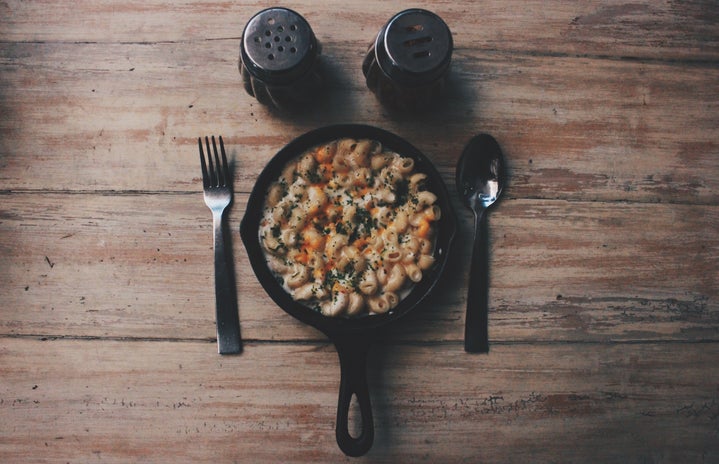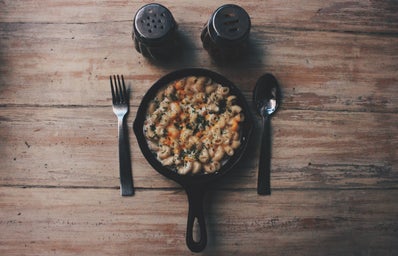It’s impossible not to notice the role that social media plays in people’s behavior. Instagram, Tik Tok, Twitter and Facebook are some examples of social networks that have a great power of influence on people on various aspects. So it’s not a surprise that it also impacts the way people eat and their food choices. As the internet is a “free territory”, people perceive it as a place in which one is allowed to talk and post about any subject they wish. As a consequence, discussions about health and people’s eating habits are held not only by professionals, but also by unqualified digital influencers.
In the past few years, it was observed an increase of people looking for a healthy lifestyle and the use of the internet to search for ways to achieve a greater well-being. According to Vitória Azevedo, this is happening especially during the Coronavirus pandemic, where the concern about health has increased precisely. “Because of this condition, we have a virus that requires us to have good health, a good quality of life, good resistance and immunity, so this demand has greatly increased the amount of people that search for that lifestyle”, explains the nutritionist.

However, searching for fitness related content on the internet can sometimes be tricky and dangerous, due to the fact that articles are not always written by health professionals. “When searching for a specific diet on the internet, such as low-carb or intermittent fasting, we find several websites and profiles that talk about this topic in a biased way, and are often written by lay people or diet practitioners, influencing the view of the reader who is unlikely to search for contrary views to draw its opinion on such eating practice”, tells Vitoria.
On social media, it happens in a similar situation. It is common for digital influencers and other people to share all aspects of their lives on the social networks for their followers, including information about their eating routine, even though they are not professionals in this area. “For our society, a healthy body and lifestyle is synonymous with thinness and a more muscular body. This ends up giving space for digital influencers and other people who have this type of body to stand out on social networks and show what they do to have that body. So they share their food, their training routine and the products that are consumed, even though they don’t understand the impact that this has on the people who are viewing this content”, explains the nutritionist.
This health and fitness related content shared on social media get into people’s heads in a very subtle way. Vitória Azevedo explains that “People spend a few hours of their day rolling a feed, on Instagram, Twitter or Facebook, watching people with similar interests and goals as theirs. So, as an example: the blogger wants to be thin, and then she starts sharing her daily routine. The followers that also want to lose weight, start to notice that the blogger’s healthier habits are giving her results. Naturally, those habits start to influence other people in a very subtle way, so they start to realize that they want to have some habits similar to those on display, so then they can reach their goal”. This is a very alarming situation due to the fact that people, instead of looking for professional aid, begin searching for fitness content on the internet, and end up consuming content produced by digital influencers who are unqualified people.
The so-called ‘healthy eating communities’ have emerged on social media and have recently gained a lot of popularity. It consists of a group of people who have adopted a healthy lifestyle and posts on social networks about their diet and exercise routine, in order to influence other people to adopt healthier habits. However, Vitória Azevedo says that she is not in favor of these communities that “usually they not only show their routines but also propose food challenges, such as thirty days without sugar, sixty days in focus or sixty days without eating processed foods… But when we encourage a food restriction, especially to people we don’t know, it’s unknown how these people are going to deal with it”, and she also adds “The problem of these communities is to determine food challenges for people in which it is not known what are the triggers of them, if they have an eating disorder already established or if exposing themselves to this type of content will worsen the situation, their mental health and their relationship with food’.

As one of the consequences of this influence of social media on food habits, it is possible to mention ‘food restriction’ as one of the most expressive and common among consumers of these contents. Food restriction is very delicate and toxic for mental health, because it interferes in the person’s relationship with food. The nutritionist Vitória Azevedo explains that “When we say a food is prohibited and unacceptable, we make it totally attractive, very palatable, practically irresistible, so the urge to eat that food becomes very great, much more than it was before you banned it“. So, according to the nutritionist, this restriction becomes a vicious cycle “The person remains in this process of restriction until the moment when it is impossible to stand it and decides to eat a portion of that food, with the thought that ‘since I have already eaten, I will eat as much as I want and tomorrow I start the diet again’. Then the person eats an exaggerated amount, without respecting the feeling of satiety. Right after that, the person has feelings of guilt, incapacity and frustration. Thus, feeling dissatisfied, this person adapts once again to periods of restriction, starting the cycle again.” In some cases this can be even worse, in which people perform compensatory acts, either in food or in physical activity or even with some medications.
To decrease the level of influence of social media on the way we eat, the nutritionist Vitória Azevedo gives three pieces of advice: the first would be to reduce the time of exposure to the screen, and especially on social media “All these social networks are able to influence people and it is important to talk about how much time people spend consuming these contents. Today you can either create a schedule for yourself, determine the amount of time you can spend on the internet, or use apps that can control the amount of hours you spend online and block the cell phone after a certain time” tells the nutritionist.
The second piece of advice is to follow profiles of health professionals that are capable of passing on the information in a clear and conscious manner. “From my point of view, the profiles of bloggers and lay people should not talk about food and physical activity without a professional. So, I believe that it is interesting for these people to ask the professionals who attend them to go on their profile and explain what is the plan for that person, in a way that they know how to pass the information, without impacting people negatively.” There are interesting spaces on social media, such as lives, IGTVs and interviews, which can generate engagement for both the influencer and the professional too, in a safe and consistent way.
The third piece of advice is for people to follow profiles that are coincident or similar to their reality and that show possibilities of healthy habits that are possible to incorporate in their routine. Accompanying influencers who do not have a life similar to theirs, often leads to a feeling of frustration, sadness and incapacity. “If you only follow profiles that show an elitist diet, for example, a person who only put dishes with Alaska Salmon, black quinoa and asparagus, which are foods that require a high purchasing power, and if you do not fit into it, you might be frustrated, or even start to dedicate your money to buy this type of food, that will often be unnecessary. A salmon with quinoa and asparagus will not be superior to rice and beans with meat and vegetables.” Vitória also adds that “we cannot compare ourselves to a blogger whose job is to be inside the house exposing certain information and products, if you are a person who leaves for work at 7 am and returns at 10 pm.” It’s important to follow profiles with bodies that resemble yours, food that coincides with yours in financial terms, routine and work realities that are also similar to yours, in order to be able to consume content that really adds to your life.
However, it is possible for profiles and influencers to talk about health in a way that their followers feel motivated to eat well and adopt healthy habits, without causing negative impacts on these people. For Vitória Azevedo, a way of talking about food on social media is by providing recipes “Rather than exposing their food as an example, bloggers can use their food as a way to teach people how to cook what they are eating. So they encourage people to have contact with healthier foods and to get back to the habit of cooking, since today we depend a lot on delivery.”
Social media has a great power in people’s lives, especially in terms of eating habits and well-being. Because of that, both digital influencers and followers need to be discerning when it comes to fitness related content. On the one hand, bloggers need to be responsible about what kind of information they pass on regarding health issues. On the other hand, people on social media should develop awareness about the information spread by influencers, while also holding them accountable for their mistaken acts. The key to avoid being negatively influenced by social media is to have knowledge about how these misguided information affects our daily relationship with food and ourselves.
—————————————————————–
The article above was edited by Marina Ponchio.
Liked this type of content? Check Her Campus Casper Libero home page for more!


